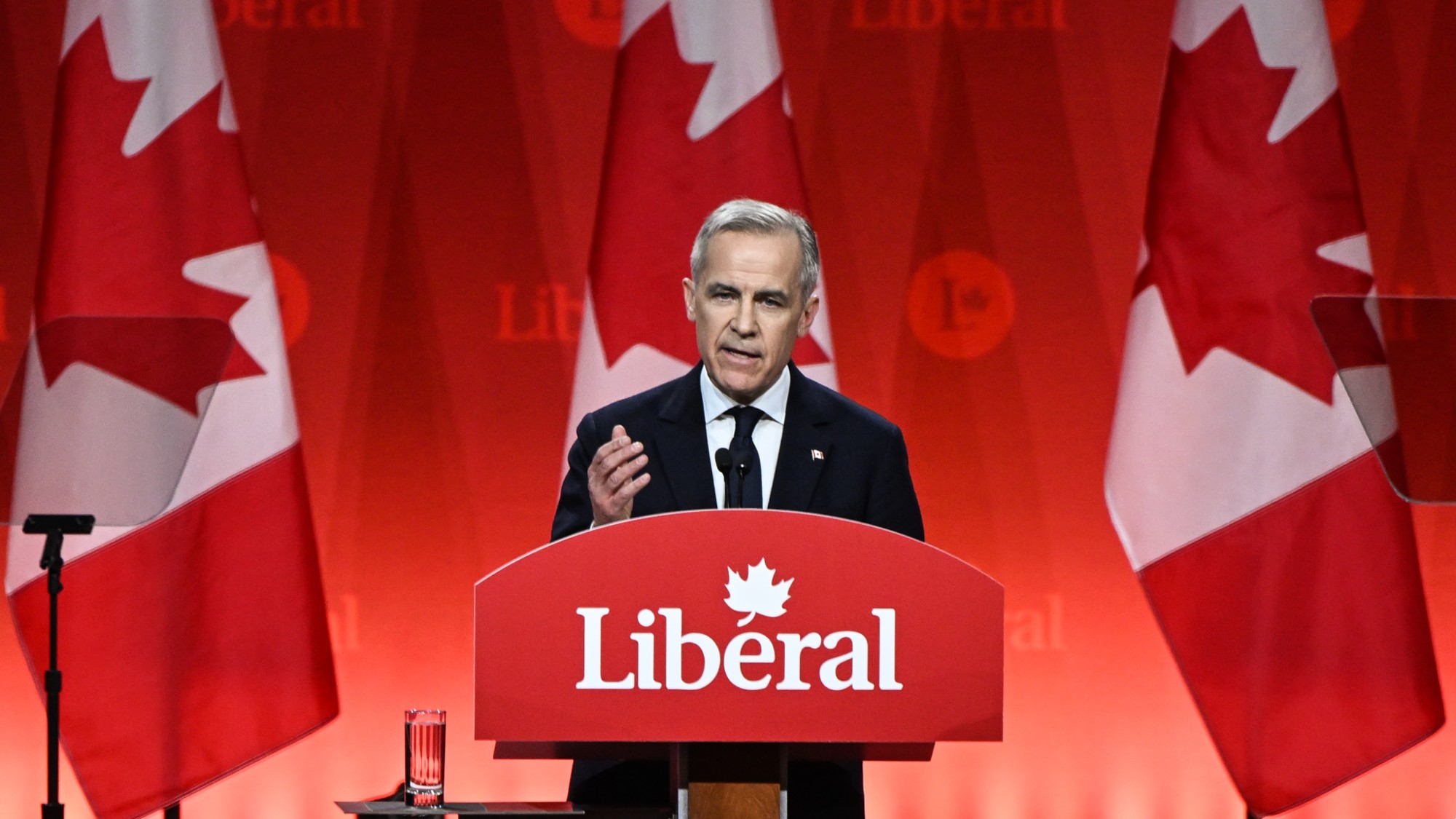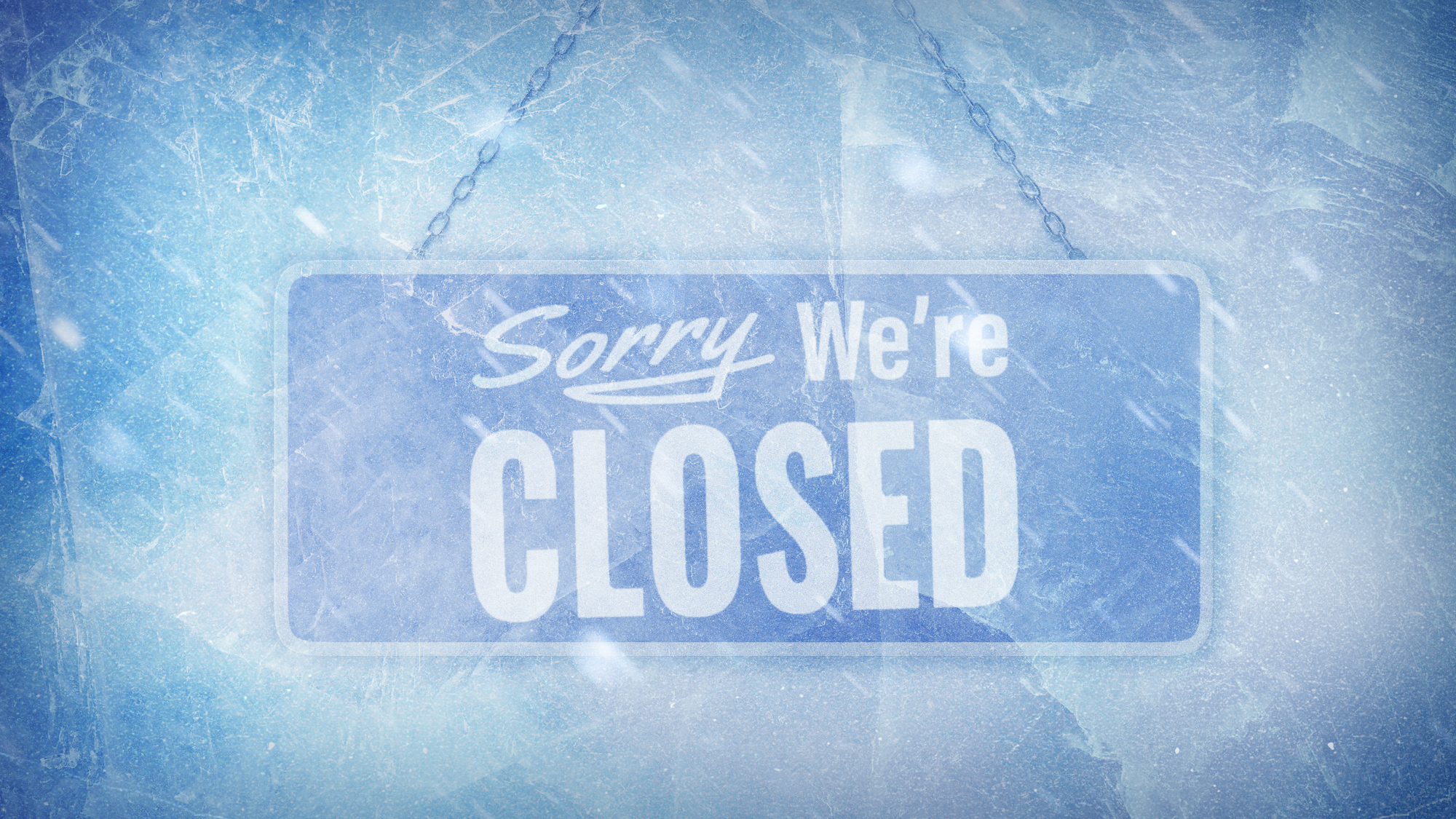Mark Carney: the banker turned prime minister who will lead Canada
Carney was elected as the new leader of the Liberal Party, replacing Prime Minister Justin Trudeau


A free daily email with the biggest news stories of the day – and the best features from TheWeek.com
You are now subscribed
Your newsletter sign-up was successful
Canada has a new leader for the first time in a decade: Mark Carney will become the 24th Canadian prime minister after being elected leader of the country's Liberal Party on March 9. Carney is replacing Prime Minister Justin Trudeau, who has led Canada since 2015.
Carney was elected Liberal Party leader in a landslide despite never having served in elected government before; he was previously a banker who served as governor of the Bank of Canada. It also remains unclear how long Carney will be able to hold power, as federal elections are widely expected to be called soon. But for now, he will lead a nation at odds with one of its closest allies: the United States.
Carney's beginnings
Carney, 59, was born in Canada's Northwest Territories and attended Harvard University and Oxford University. His work has largely been defined by stints in the banking industry. Carney "began his career in the private sector, spending over a decade in the London, Tokyo, New York and Toronto offices of Goldman Sachs," said NPR.
The Week
Escape your echo chamber. Get the facts behind the news, plus analysis from multiple perspectives.

Sign up for The Week's Free Newsletters
From our morning news briefing to a weekly Good News Newsletter, get the best of The Week delivered directly to your inbox.
From our morning news briefing to a weekly Good News Newsletter, get the best of The Week delivered directly to your inbox.
He eventually became directly involved in Canada's fiscal policy, and ran the Bank of Canada, the country's central bank, from 2008 to 2013, a "period which included the global financial crisis," said NPR. He then ran the Bank of England from 2013 to 2020, making him the "first non-Briton appointed to do so." Carney is married to British economist Diana Fox Carney and has four children.
Leading Canada
Carney will enter Canadian politics facing a mountain of challenges. He is the first person to become Canadian prime minister without having ever been a member of Parliament, said The Guardian. As a political outsider, his background "would in normal times have killed his candidacy in Canada but his distance from unpopular incumbent Justin Trudeau and a high-profile banking career played to his advantage."
His most pressing matter will likely be the current trade war between Canada and the United States. President Donald Trump's Canadian tariffs are the "greatest crisis of our lifetimes," Carney said in his victory speech. If the tariffs succeed, they "would destroy our way of life." But Carney has also stood firm against Trump, including the president's threat to make Canada the 51st state. Canada "never, ever will be part of America in any way," he said. The U.S. "should make no mistake: In trade, as in hockey, Canada will win."
Carney's conservative opponents are working to spotlight his lack of government experience. Since he is not a member of Parliament, Carney "cannot cast a ballot in parliamentary votes, nor can he participate in Question Period, when government ministers are challenged by lawmakers," said The Washington Post. But his work as a banking mogul "earned him a reputation as 'fixer' that he has wrapped into his pitch to Canadian voters."
A free daily email with the biggest news stories of the day – and the best features from TheWeek.com
However, the "reconstituted Liberal government is likely to be short-lived," said Reuters. Canada's federal elections must legally be held by Oct. 20, 2025, but Carney can call them earlier. He is likely to do this, as if he "does not call an election, his political opponents have said they would defeat the government at their first opportunity when the Parliament reconvenes in late March." The opposition Conservative Party, alongside the smaller Bloc Quebecois and New Democrats, have all said they will challenge the Liberals.
It was widely expected that the Conservative Party would win the upcoming election, as "opinion polls consistently showed the Conservatives with a strong lead," said the BBC. But Trudeau's resignation and Trump's tariffs have "raised expectations of a closer vote."
Justin Klawans has worked as a staff writer at The Week since 2022. He began his career covering local news before joining Newsweek as a breaking news reporter, where he wrote about politics, national and global affairs, business, crime, sports, film, television and other news. Justin has also freelanced for outlets including Collider and United Press International.
-
 Political cartoons for February 15
Political cartoons for February 15Cartoons Sunday's political cartoons include political ventriloquism, Europe in the middle, and more
-
 The broken water companies failing England and Wales
The broken water companies failing England and WalesExplainer With rising bills, deteriorating river health and a lack of investment, regulators face an uphill battle to stabilise the industry
-
 A thrilling foodie city in northern Japan
A thrilling foodie city in northern JapanThe Week Recommends The food scene here is ‘unspoilt’ and ‘fun’
-
 ICE eyes new targets post-Minnesota retreat
ICE eyes new targets post-Minnesota retreatIn the Spotlight Several cities are reportedly on ICE’s list for immigration crackdowns
-
 House votes to end Trump’s Canada tariffs
House votes to end Trump’s Canada tariffsSpeed Read Six Republicans joined with Democrats to repeal the president’s tariffs
-
 Trump reclassifies 50,000 federal jobs to ease firings
Trump reclassifies 50,000 federal jobs to ease firingsSpeed Read The rule strips longstanding job protections from federal workers
-
 ‘My donation felt like a rejection of the day’s politics’
‘My donation felt like a rejection of the day’s politics’Instant Opinion Opinion, comment and editorials of the day
-
 Gavin Newsom and Dr. Oz feud over fraud allegations
Gavin Newsom and Dr. Oz feud over fraud allegationsIn the Spotlight Newsom called Oz’s behavior ‘baseless and racist’
-
 Does standing up to Trump help world leaders at home?
Does standing up to Trump help world leaders at home?Today’s Big Question Mark Carney’s approval ratings have ‘soared to new highs’ following his Davos speech but other world leaders may not benefit in the same way
-
 Businesses are caught in the middle of ICE activities
Businesses are caught in the middle of ICE activitiesIn the Spotlight Many companies are being forced to choose a side in the ICE debate
-
 ‘It’s good for the animals, their humans — and the veterinarians themselves’
‘It’s good for the animals, their humans — and the veterinarians themselves’Instant Opinion Opinion, comment and editorials of the day
